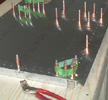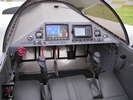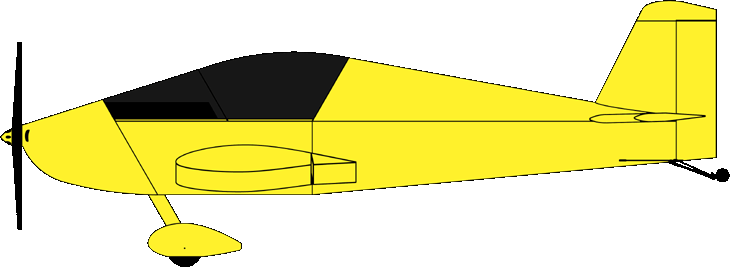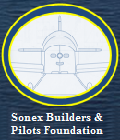


random user submitted photo
N620AK Down
15 posts
• Page 1 of 2 • 1, 2
N620AK Down
Sad to see this, all my bear wishes to these two for their recovery. Stay safe out there.
https://aviation-safety.net/wikibase/wiki.php?id=237367
https://aviation-safety.net/wikibase/wiki.php?id=237367
Waiex 158 New York. N88YX registered.
3.0 Liter Corvair built, run, and installed.
Garmin panel, Shorai LiFePo batteries.
3.0 Liter Corvair built, run, and installed.
Garmin panel, Shorai LiFePo batteries.
- GordonTurner
- Posts: 669
- Joined: Tue Feb 21, 2012 1:14 am
- Location: NY, NY
Re: N620AK Down
Thank you, Gordon. This is so troubling. My heart goes out to the family of Mr. Kostrzewa and the passenger who's in critical condition. Paul
- thomas
- Posts: 59
- Joined: Sat Aug 27, 2016 9:45 am
Re: N620AK Down
That fuel tank does seem to burn so well on a few crashes.......
Though possibly not specific to THIS accident which looks like it might have been a stall spin from the accounts (though I'm not offering that up - I'll wait for the NTSB).... So securing the plane might not have been possible.
--
As general discussion:
Clearly we need to secure systems prior to a forced landing. But keeping the electrics on in the hope of getting electronic mags to work and so perhaps get a restart - needs balancing with master off prior to the forced landing.
Fuel tap off at the last moment too.
But both these items are need to be done at a high workload moment when you might be trying to finesse the landing - and so get overlooked. Or you doit early and lose an opportunity to try one more restart.
And how crashworthy is the tank? If you are rigid plumbed from the pick up to the firewall - then any displacement of the tank, or distortion of the firewall will probably make a nonsense of the fuel tap - the tank fitting might tear out the tank anyway. How may folks are hard plumbed pickup to firewall? How many are flex line with wire armor? Seems like the latter would give the fitting a chance if the tank got displaced or firewall distorted.
How well does the fuel cap stand up to (say) half a tank of fuel suddenly sloshing forward at 40 knots to zero? Or will that big slug of fuel blow the tank cap off and send fuel everywhere?
Does your vent incorporate a check valve to stop fuel coming out but letting air in?
Are the tank straps adequate for dealing with the sudden deceleration?
--
I don't have answers - but I'm throwing it out there for discussion.
Though possibly not specific to THIS accident which looks like it might have been a stall spin from the accounts (though I'm not offering that up - I'll wait for the NTSB).... So securing the plane might not have been possible.
--
As general discussion:
Clearly we need to secure systems prior to a forced landing. But keeping the electrics on in the hope of getting electronic mags to work and so perhaps get a restart - needs balancing with master off prior to the forced landing.
Fuel tap off at the last moment too.
But both these items are need to be done at a high workload moment when you might be trying to finesse the landing - and so get overlooked. Or you doit early and lose an opportunity to try one more restart.
And how crashworthy is the tank? If you are rigid plumbed from the pick up to the firewall - then any displacement of the tank, or distortion of the firewall will probably make a nonsense of the fuel tap - the tank fitting might tear out the tank anyway. How may folks are hard plumbed pickup to firewall? How many are flex line with wire armor? Seems like the latter would give the fitting a chance if the tank got displaced or firewall distorted.
How well does the fuel cap stand up to (say) half a tank of fuel suddenly sloshing forward at 40 knots to zero? Or will that big slug of fuel blow the tank cap off and send fuel everywhere?
Does your vent incorporate a check valve to stop fuel coming out but letting air in?
Are the tank straps adequate for dealing with the sudden deceleration?
--
I don't have answers - but I'm throwing it out there for discussion.
Graeme JW Smith
-

GraemeSmith - Posts: 939
- Joined: Sat May 18, 2019 8:58 am
- Location: RI
Re: N620AK Down
Hi all,
www.kathrynsreport.com.
N620AK,sonex, north salt lake. kudos to the 2 bystanders who stopped their car and rescued the two out of burning plane.
who themselves suffered smoke and burns too.
N951X , onex, minneapolis. aborted takeoff , veered off rwy, struck rwy light.
be careful out there!
WaiexN143NM
Michael
www.kathrynsreport.com.
N620AK,sonex, north salt lake. kudos to the 2 bystanders who stopped their car and rescued the two out of burning plane.
who themselves suffered smoke and burns too.
N951X , onex, minneapolis. aborted takeoff , veered off rwy, struck rwy light.
be careful out there!
WaiexN143NM
Michael
- WaiexN143NM
- Posts: 1207
- Joined: Mon Sep 15, 2014 1:04 am
- Location: palm springs CA
Re: N620AK Down
Graeme said, "Clearly we need to secure systems prior to a forced landing. But keeping the electrics on in the hope of getting electronic mags to work and so perhaps get a restart - needs balancing with master off prior to the forced landing.
Fuel tap off at the last moment too.
But both these items are need to be done at a high workload moment when you might be trying to finesse the landing - and so get overlooked. Or you do it early and lose an opportunity to try one more restart."
I strongly disagree that hoping for a restart is a good idea. If you are at high altitude and have minutes of time to try restarting then go for it. But, if you are low then you only have one task....get the aircraft to a safe glide speed and make a smooth, wings level approach and touchdown. Continuing to focus on restarting a dead engine is just asking for trouble when all your focus should be on flying the plane.
In this case..."Witnesses described the aircraft as just losing elevation and banking hard". Not a good plan.
I've had one engine stoppage in a Sonex which occurred while on base leg for landing in a new plane on its first test flight. An engine is not crucial to a successful landing; maintaining a safe speed and attitude is.
https://youtu.be/45khkO4hvnY
Here is an excellent video on how to handle loss of power incidents without killing yourself.
https://www.youtube.com/watch?v=bUFrN5NQ6vY
Fuel tap off at the last moment too.
But both these items are need to be done at a high workload moment when you might be trying to finesse the landing - and so get overlooked. Or you do it early and lose an opportunity to try one more restart."
I strongly disagree that hoping for a restart is a good idea. If you are at high altitude and have minutes of time to try restarting then go for it. But, if you are low then you only have one task....get the aircraft to a safe glide speed and make a smooth, wings level approach and touchdown. Continuing to focus on restarting a dead engine is just asking for trouble when all your focus should be on flying the plane.
In this case..."Witnesses described the aircraft as just losing elevation and banking hard". Not a good plan.
I've had one engine stoppage in a Sonex which occurred while on base leg for landing in a new plane on its first test flight. An engine is not crucial to a successful landing; maintaining a safe speed and attitude is.
https://youtu.be/45khkO4hvnY
Here is an excellent video on how to handle loss of power incidents without killing yourself.
https://www.youtube.com/watch?v=bUFrN5NQ6vY
- radfordc
- Posts: 573
- Joined: Fri Jun 03, 2011 9:39 am
Re: N620AK Down
I said it needs balancing. It's a judgement call. I got a restart at 800ft once after a 10 mile / 10 min glide without an engine (not a Sonex). The difference the engine made was 'assuring the runway' as opposed to 'maybe the runway' and a hostile environment outside the airport. Electrics were still on for comms with a potential rescuer and I gave it one more shot before I was about to secure them.
But that is not what I was really interested in.
I was hoping for a discussion abut crash worthiness of the fuel tank and system
But that is not what I was really interested in.
I was hoping for a discussion abut crash worthiness of the fuel tank and system
Graeme JW Smith
-

GraemeSmith - Posts: 939
- Joined: Sat May 18, 2019 8:58 am
- Location: RI
Re: N620AK Down
I know there have been several Sonex fires after a crash. I think all of them had the airplane impacting at high vertical rate of descent. I believe the plastic tank is as safe or safer than an aluminum tank but don't have any way of knowing for sure.
- radfordc
- Posts: 573
- Joined: Fri Jun 03, 2011 9:39 am
Re: N620AK Down
In addition to the other items i mentioned as reasons for panel mounted push pull for fuel shut off, my main reason for installing that was to make it visible and accessible while shoulder straps were tight, in event it needed to be quickly shut off for an off field landing.
David A.
David A.
- DCASonex
- Posts: 935
- Joined: Mon Sep 12, 2011 8:04 pm
- Location: Western NY USA
Re: N620AK Down
Hi Guys,
One danger of having the fuel tank in the cockpit is the probability of the fuel line being dislodged by a shifting tank or flailing feet and legs during an accident. I remember way back in the day Eric Scheppers hit some turbulence, kicked his fuel line, and developed an in flight leak.
Our main defense against that is probably having adequate service loops (slack) in the lines and maybe sticking to steel braided lines.
Wes
One danger of having the fuel tank in the cockpit is the probability of the fuel line being dislodged by a shifting tank or flailing feet and legs during an accident. I remember way back in the day Eric Scheppers hit some turbulence, kicked his fuel line, and developed an in flight leak.
Our main defense against that is probably having adequate service loops (slack) in the lines and maybe sticking to steel braided lines.
Wes
Wes Ragle
Onex #89
Conventional Gear
Long Tips
Hummel 2400 w/Zenith Carb
Prince P Tip 54x50
First Flight 06/23/2020
42.8 Hrs. as of 10/30/21
Onex #89
Conventional Gear
Long Tips
Hummel 2400 w/Zenith Carb
Prince P Tip 54x50
First Flight 06/23/2020
42.8 Hrs. as of 10/30/21
- WesRagle
- Posts: 904
- Joined: Fri Jan 05, 2018 12:35 pm
- Location: Weatherford, Tx
Re: N620AK Down
Hi all,
All good comments. A terrible tradgedy. I believe those sonex tanks are pretty robust and strong. Better than a welded up alum tank that could split a weld. The weak link is the fuel line and fittings. i put the steel braided lines in, from the shut off valve to the tbi. Flexible. Make sure the tanks fit well in the straps to prevent shifting. A push pull knob to the fuel valve, when strapped in tight should be mandatory.
The caps..... some tanks have the screw on caps, some have the over center bulge type. Make sure its tight, not easy to get on and off at the fuel pump. The vent.......peter anson has a great little check valve fitting.
The accidents that breached the tanks were very violent. hard to prevent.
Remember the late great bob hoover, in warbird square, osh eaa, still sharp as a tack but in a wheelchair, still educating
us..........in a forced landing FLY the plane till it stopped. No high rate of descent, no steep banking down low, flaps, controlled descent , gentle , hold off speed, low energy , dont stall!
Good reminder to shut off fuel and electrics in a forced landing. If time a checklist, if not , like sully, FLY the plane.
Will be interesting what caused this accident . We will find out from the NTSB in time.
This looks to be powered by an aerovee turbo. I hope it had the latest mods.
be safe out there!
WaiexN143NM
Michael
All good comments. A terrible tradgedy. I believe those sonex tanks are pretty robust and strong. Better than a welded up alum tank that could split a weld. The weak link is the fuel line and fittings. i put the steel braided lines in, from the shut off valve to the tbi. Flexible. Make sure the tanks fit well in the straps to prevent shifting. A push pull knob to the fuel valve, when strapped in tight should be mandatory.
The caps..... some tanks have the screw on caps, some have the over center bulge type. Make sure its tight, not easy to get on and off at the fuel pump. The vent.......peter anson has a great little check valve fitting.
The accidents that breached the tanks were very violent. hard to prevent.
Remember the late great bob hoover, in warbird square, osh eaa, still sharp as a tack but in a wheelchair, still educating
us..........in a forced landing FLY the plane till it stopped. No high rate of descent, no steep banking down low, flaps, controlled descent , gentle , hold off speed, low energy , dont stall!
Good reminder to shut off fuel and electrics in a forced landing. If time a checklist, if not , like sully, FLY the plane.
Will be interesting what caused this accident . We will find out from the NTSB in time.
This looks to be powered by an aerovee turbo. I hope it had the latest mods.
be safe out there!
WaiexN143NM
Michael
- WaiexN143NM
- Posts: 1207
- Joined: Mon Sep 15, 2014 1:04 am
- Location: palm springs CA
15 posts
• Page 1 of 2 • 1, 2
Who is online
Users browsing this forum: autopro and 82 guests







